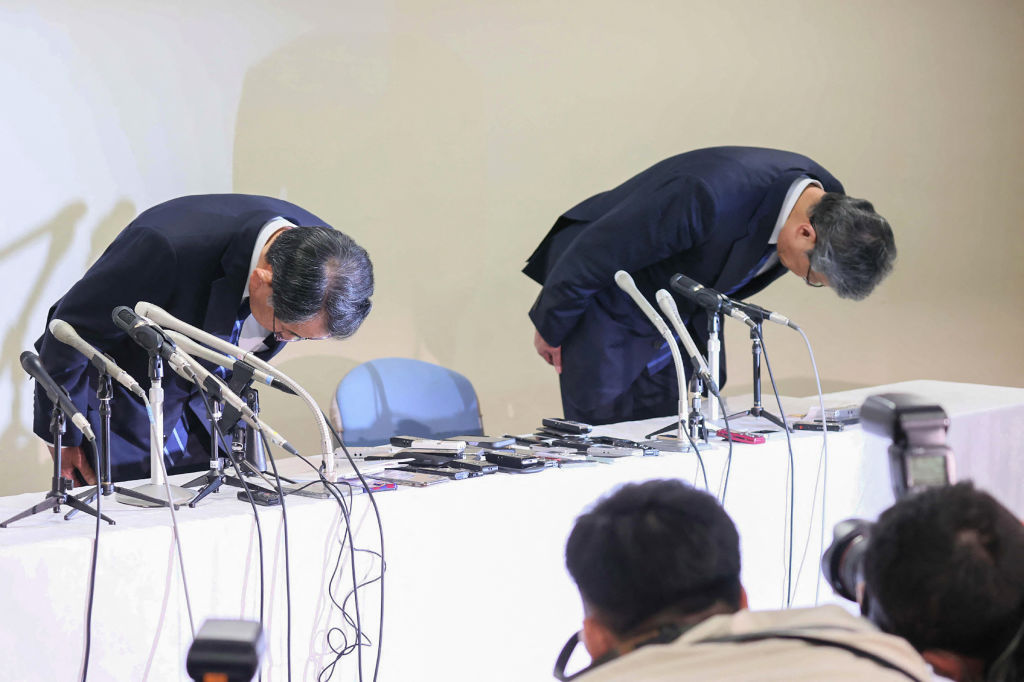
Japan’s ruling party has stood the test of time, surviving even when expected to fade. But a fresh wave of scandals, heralding record-low public approval ratings, has prompted the conservative Liberal Democratic Party (LDP) to try to shape up.
For over 70 years, the LDP—the party of the late Shinzo Abe and now incumbent Prime Minister Fumio Kishida—had been indispensable, only losing its grip on power twice in two short-lived interregnums in 1993 and 2009.
But since November, the LDP has been in troubleshooting and “window dressing” mode in response to its biggest scandal in decades after LDP internal factions’ underreporting and misallocation of money from respective fundraising parties were made public, angering the Japanese populace. Many senior lawmakers and officials resigned and the Kishida cabinet was reshuffled in December, and the party created a political reform task force in January to overhaul the systems of internal factions and revise policies for members. On March 7, the task force approved punishing LDP lawmakers for fundraising violations by their staffers. And on Tuesday, the party adopted new rules barring the creation and continuation of intraparty factions.
Such efforts, however, have been overshadowed by emergent fiascos involving party members. Last week, local newspaper Sankei reported that the Wakayama chapter of the LDP hosted a hotel event for the party’s Youth Division in November that featured five female dancers in lingerie. Party officials and legislators reportedly attended the event, and video Sankei obtained reportedly showed some attendees tipping the scantily-clad dancers mouth-to-mouth. Two LDP lower house legislators have since resigned from their posts within the party.
Also last week, the LDP was rocked by another controversy, reported in the Weekly Shincho magazine, involving an upper house legislator’s affair with a Canadian saxophone player. The LDP lawmaker admitted to the affair and resigned from an internal party post.
Japanese opinion polls show that the public isn’t happy with the LDP’s performance. A Jiji Press survey in January revealed support for the ruling party had fallen to just 14.6%, the lowest score since the group began canvassing in the 1960s (excluding years when the LDP was not in power).
“As is the case with the slush fund scandal, public frustration is exacerbated by the fact that there are no signs that the LDP is capable of reforming itself,” Ben Ascione, lecturer in international relations at Waseda University’s Graduate School of Asia-Pacific Studies in Tokyo, tells TIME.
Yoshikazu Kato, director of Tokyo-based geopolitical consulting firm Trans-Pacific Group, tells TIME that a significant factor is the country’s “weak” opposition, which neither provides sufficient checks and balances to pressure the LDP to reform nor offers the Japanese public an alternative government to get behind. Kato also points to a lack of viable LDP candidates to replace Kishida that can manage to police the party, since Abe’s assassination in 2022 has left an internal power vacuum. “[There are] three no’s: no opposition, no alternative, no replacement,” Kato says. “That’s why Japan’s here.”
Stephen Nagy, visiting fellow at the Japan Institute of International Affairs, says that following the most recent scandals, there will likely be “further tightening of the belt” and “disciplinary action” across the LDP, as well as a wider campaign to win back public approval. The hotel-dancers incident only reaffirms the perception, Nagy says, “that these politicians are out of touch with the ordinary Japanese people's needs.” But Nagy warns that such self-imposed reform measures aren’t likely going to be enough to “save” Kishida, whose Cabinet’s public approval hit its lowest point in February at 16.9%, per Jiji Press.
Kishida doesn’t have to call a parliamentary election until 2025, but his party has set a leadership vote for September—a vote that may eventually cost him, as analysts tell TIME the Prime Minister’s inability to rein in scandals is growing increasingly untenable.
“Kishida is not popular within the party elite and is seen as indecisive and wishy-washy,” Nagy tells TIME. “These scandals, while not directly related to Kishida, may be enough negative political baggage to lose support for his leadership. At the end of the day, the LDP cares about winning elections and less about who is the PM.”
More Must-Reads from TIME
- Donald Trump Is TIME's 2024 Person of the Year
- Why We Chose Trump as Person of the Year
- Is Intermittent Fasting Good or Bad for You?
- The 100 Must-Read Books of 2024
- The 20 Best Christmas TV Episodes
- Column: If Optimism Feels Ridiculous Now, Try Hope
- The Future of Climate Action Is Trade Policy
- Merle Bombardieri Is Helping People Make the Baby Decision
Contact us at letters@time.com